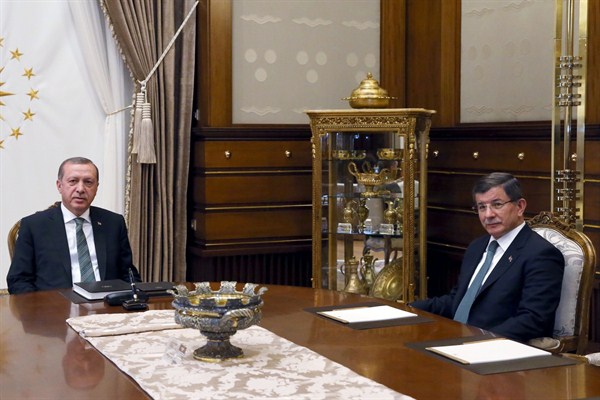The ouster of Ahmet Davutoglu as prime minister of Turkey is an internal matter. But it will almost certainly have negative repercussions for the hard-fought and controversial deal between Turkey and the European Union, by which Brussels agreed to compensate Ankara for helping to stem the flow of refugees and migrants to Europe. It’s the latest of several cases where domestic political dramas have affected the foreign policy interests of important middle powers.
Last week, a long-simmering power struggle between Davutoglu and Turkish President Recep Tayyip Erdogan came to a boil. Erdogan had recently cajoled or convinced others in his Justice and Development Party (AKP) to strip Davutoglu of the power to select provincial officials. Davutoglu acceded to the pressure by resigning, effective after a party conference later this month. Erdogan had groomed Davutoglu, a former professor of international relations, as his political partner, as he had done earlier with another once-trusted lieutenant, Abdullah Gul, who served as president from 2007 to 2014, until he too was shunted aside.
In both cases, one can find substantive disagreements over specific policies as well as personality clashes. But the larger narrative is Erdogan’s increasingly authoritarian leadership. He is unable to tolerate other prominent officials engaging publicly on public policy issues, from Gul’s criticism of Syria policy to Davutoglu’s reported concerns about Turkey’s harsh treatment of journalists and public intellectuals.

